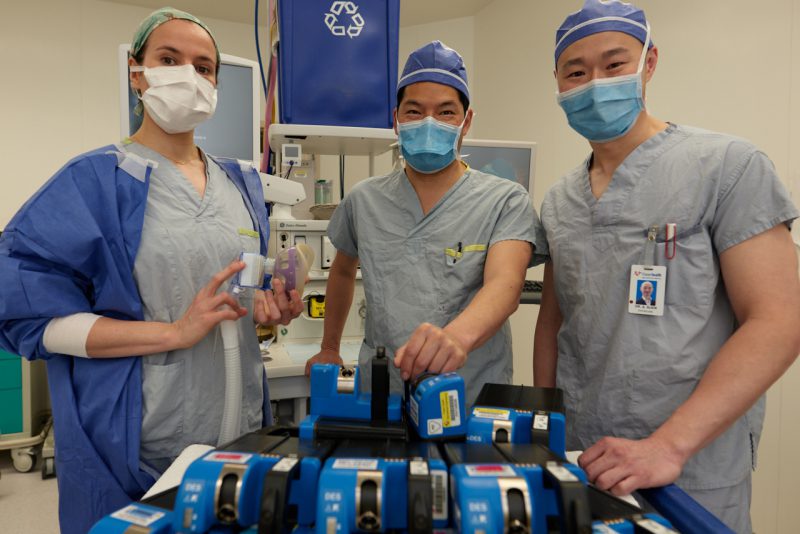
“Within our department, we are trying to adopt more environmentally sustainable practices,” says anesthesiologist Dr. Cedric Ho, who is also head of Royal Columbian’s Medical Staff Association. “COVID has emphasized how interconnected we are around the world. Individual actions in one part of one city can affect what happens in the next city or even the rest of the country.”
Canada’s healthcare system is responsible for an estimated 4.6% of the country’s total greenhouse gas emissions. Hospital operating rooms have a disproportionate environmental footprint because of the use of anesthetic gases which have an outsized greenhouse gas effect. “We typically use one of two agents in the majority of our general anesthesia cases,” explains Dr. Ho. “One big difference between the two is their carbon dioxide equivalent.”
Desflurane-free
For some years now, anesthesiologists have been moving away from desflurane, which is a longer-lasting and more potent greenhouse gas than other similar gases. One study calculated that desflurane has about 24 to 26 times the global warming potential of the most common alternative.
“It’s difficult to argue that one or the other offers a superior anesthetic,” says Dr. Ho. “The choice between those agents is mostly personal preference, but if I use desflurane for a 2 hour operation, it’s like I’ve driven the patient to Kamloops in a big SUV. If I do this for every patient all year, it’s like driving around the world—ten times.”
So the hospital’s anesthesiologists have decided to make Royal Columbian as well as Eagle Ridge Hospital desflurane-free zones.
“We hope that what we are doing at this hospital will inspire other hospitals to do the same,” says Dr. Ho. “Desflurane is delivered through a vaporizer. Since we have resolved to stop using this drug in our two hospitals, the hospital is no longer buying desflurane and we are returning all of these vaporizers to the manufacturer.” The anesthesiologists believe they are the biggest hospital in Canada to take this step and hope to inspire others to do the same.
They are also actively exploring other ways to further reduce their environmental footprint.
“We believe there are lots of opportunities to reduce waste and to improve the environmental sustainability of what’s a really necessary part of our lives,” says Dr. Ho.
